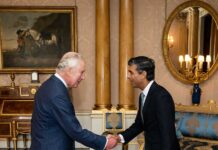
BBC News: A US man has become the first person in the world to get a heart transplant from a genetically-modified pig.
David Bennett, 57, is doing well three days after the experimental seven-hour procedure in Baltimore, doctors say.
The transplant was considered the last hope of saving Mr Bennett’s life, though it is not yet clear what his long-term chances of survival are.
“It was either die or do this transplant,” Mr Bennett explained a day before the surgery.
“I know it’s a shot in the dark, but it’s my last choice,” he said.
Doctors at the University of Maryland Medical Center were granted a special dispensation by the US medical regulator to carry out the procedure, on the basis that Mr Bennett would otherwise have died.
For the medical team who carried out the transplant, it marks the culmination of years of research and could change lives around the world.
Surgeon Bartley Griffith said the surgery would bring the world “one step closer to solving the organ shortage crisis”, the University of Maryland School of Medicine said in a release. That crisis means that 17 people a day in the US die waiting for a transplant, with more than 100,000 reportedly on the waiting list.
The possibility of using animal organs for so-called xenotransplantation to meet the demand has long been considered, and using pig heart valves is already common.
In October 2021, surgeons in New York announced that they had successfully transplanted a pig’s kidney into a person. At the time, the operation was the most advanced experiment in the field so far.
However, the recipient on that occasion was brain dead with no hope of recovery.










